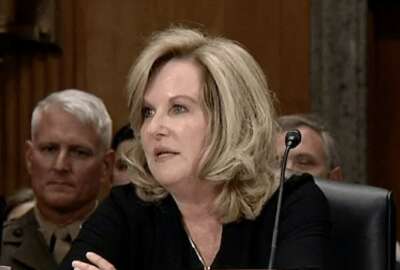The Federal Labor Relations Authority is considering whether agency heads should have the right to review the legality of collective bargaining agreements that have expired or rolled over — before labor and management finalize new ones.
FLRA will propose new guidance and solicit feedback on the question this week, according to a Federal Register notice slated for publication Thursday.
The proposed rule stems from a request the Agriculture Department made, which asked FLRA to clarify what happens to expired or rolled over collective bargaining agreements that contain specific provisions stating the contract remains in force until a new one has been finalized.
Specifically, USDA asked FLRA to issue policy of these describing two key tenets. First, when either the union or the agency asks to renegotiate these expiring agreements, agencies should be able to review the legality of the agreement as if it were automatically renewed.
And second: “An expiring agreement that remains in force until the parties reach a new agreement is effectively renewed automatically every day, so for as long as the expiring agreement continues in force during renegotiations, a new agency-head review period begins each day,” the FLRA proposed rule reads.
Though this may sound like a highly specific issue, many collective bargaining agreements contain such “continuance” provisions that state the contract remains in force until a new document has been negotiated.
Federal employee unions have disputed the idea that collective bargaining agreements ever technically “expire.” Many agency-union contracts contain language indicating the agreement will roll over and continue to the point when both parties finalize a new contract.
The subject of this debate is significant, given the current state of affairs with the president’s three workforce executive orders in full force.
The Office of Personnel Management has told agencies to begin fully implementing the orders on collective bargaining, official time and employee removals.
That means for organizations whose collective bargaining agreements have expired or rolled over, agencies must implement all relevant portions of the EOs, even if the parties haven’t yet opted to reopen the agreement, OPM said back in November.
Provisions in collective bargaining agreements that are inconsistent with the president’s workforce executive orders should be revisited, OPM has said, and new agreements should include language that reflects the EOs and their provisions.
Knowing when and how agencies can review these bargaining agreements and begin enforcing the workforce executive orders during the renegotiation process will be key.
The FLRA notice illustrates an ongoing debate — at least within USDA — about how these agreements should be handled by agency management.
On one hand, USDA said these “continuance provisions” mean existing bargaining agreements don’t expire until renegotiations are finished — even if prior contracts contain an “expiration date.”
“The consequence of such an interpretation is that, under [the Federal Service Labor-Management Relations Statute], for as long as the parties’ renegotiations take, an agency may not enforce rule or regulation changes that occurred during the agreement’s originally specified term,” the authority’s rule reads. “USDA asserts that a continuance provision that is interpreted in this manner is unjust because an agency that allows automatic renewal can enforce rule and regulation changes much earlier than an agency that requests renegotiations.”
On the other hand, USDA said other arbitrators view these agreements with “continuance provisions” differently. Some say these agreements expire on the date specified in the contract, even when parties request new negotiations. Only these “continuance provisions” can allow expired agreements to renew automatically — but only for the length of the renegotiations.
“According to USDA, this interpretation allows an agency to enforce rule or regulation changes that occurred during the agreement’s originally specified term throughout most, if not all, of the parties’ renegotiations without violating [labor-management statute],” the rule reads.
Agencies, employee unions and members of the public have 30 days to weigh in and comment on the debate, according to the authority.
The American Federation of Government Employees, which represents multiple components within USDA, said it was “surprised and disappointed” to hear of the department’s request.
“It is not consistent with the law or the facts,” Everett Kelly, AFGE national secretary-treasurer, said Thursday in a statement. “We are already bargaining a new contract for USDA food safety inspectors. The current contract, which the USDA agreed to, clearly states that the existing agreement will remain in force until a new agreement is signed. There is no valid reason to deviate from what the law and contract require. AFGE does not support this request nor does AFGE support any attempt by USDA to evade its legal and contractual obligations.”
Copyright
© 2024 Federal News Network. All rights reserved. This website is not intended for users located within the European Economic Area.

